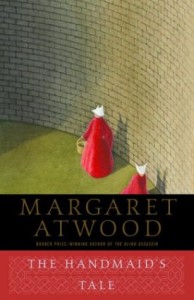So yeah, although I do enjoy the movie overall, I still can’t get over how Scottie behaved during the second half of the movie. Please note that this will be probably just end up being a nonsensical rant more than anything else, so if there are some parts that don’t make much sense, that I haven’t explain very well, or are just flat out random, please bear with me.
During the first half of the movie, I was fine with Scottie. With how his friend Gavin hired him to be his private investigator to watch over his wife Madeline, him spying and following her around can be excused since he’s technically doing his job. After Madeline’s “death” however, that’s when I got quite freaked out by him.
Let’s check off the reasons for that shall we? Seeing Madeline through practically every women he meets? Check. Goes to Judy uninvited because she looks similar to Madeline who he now obsesses over? Check. Forces her to wear the same style of clothing/hair that Madeline wore despite her protests? Check. Takes her back to the place where Madeline’s “death” took place in order TO USE HER AS A TOOL TO MAKE HIMSELF FEEL BETTER? FRICKING CHECK.
What really upsets me about this more than anything else is that this is supposed to be the good guy, the character we’re supposed to be rooting for to succeed in his mission. That scares me a lot as males at the time who grew up watching this film at the time will think that the creepy, obsessive behavior is acceptable, that this makes them strong, desirable men that women would want to do everything, even change themselves for! It wouldn’t matter much if it was just a normal film, but this isn’t the case. Vertigo is one of Hitchcock’s most famous films, so with the impact it had, of course more and more people check it out in the following years, so this movie had been watched by a large audience.
I know that several people apparently do defend what he does as being justifed, and I do in a sense get that Scottie was tricked by his friend Gavin just so that he can use Madeline’s death to cover up murdering his wife and that Madeline did decide to go along with his demands anyways because she loves him, but that’s about the most that I can deal with. The main problem I have here is that he shouldn’t have a reason to bother to continue with the mystery after Madeline’s supposed suicide.
But he’s a detective, it’s his job/instincts!
Well, it is in name, but he seems fairly reluctant for the role in the movie’s plot. For the first half, he retired from the police force after the incident that killed his fellow officer and caused his vertigo. With the earlier investigation, he didn’t want to do it in the first place when Gavin asked him to. Scottie even suggested for Gavin to bring Madeline to a psychiatrist or a doctor to deal with her issue.
During the second half of the movie. He’s been held in a sanatorium (I think?) for about a year during which it is assumed that he was unable to do work due to his depression, or at the very least not be going around investigating again like he did before.
In both of these cases, this proves that after traumatic events, he stops investigating entirely, albeit for different reasons. So this whole “detective thing” going on with Judy? That ain’t a detective doing his job, that’s an obsessive, manipulative creeper who seems to need the existence of Madeline (or a woman like Madeline) in order for him to function and be happy again. (I dunno why, but doesn’t that seem like a strange role reversal in a way that stereotypes want us to believe that women need a man to complete their lives? Hmm….)
Scottie subconsciously knew that Madeline wasn’t truly dead!
Although it’s possible, it’s never been confirmed and the chances are slim, so that’s not very solid as an excuse.
Well, Madeline went along with Scottie’s demands out of love!
Yes and no. Yes, it’s clear that she does love him and does want to play along to have a chance to be with him. However, I feel like there’s this one thing that we’ve all overlooked; she was most likely used by Gavin as a pawn, not the one most likely to come up with the cover up/plan (unless there was something that I missed). Remember that this is still the late 1950’s so it’s automatic to understand that Gavin was the one in control and was using Madeline as a means to his own end of killing his wife. Just like how Scottie used Madeline as a means to his own end of “moving on from the past” and getting over his vertigo. She fell into the hands of one controlling man to another, so she in part had less control of the situation than some would argue.
I knew there were some other points, but these were just the ones that I can formulate in my head at the moment.
I guess what I’m trying to get at here is that if this is the character that men back at the time are supposed to relate to and aspire to become, no wonder that in our more free society, there’s still some patriarchal aspects that remain due to the older generations continuing to enforce those views through various forms of power, whether it be through government, media, and simply people within our own lives.
